

CAPTION CONTEST
Enter this week’s caption contest! (Scene, pg 4)
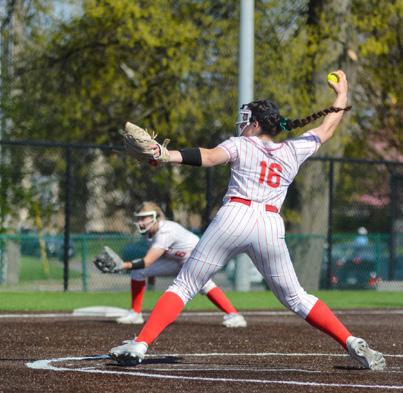
Pro-Palestine protest at admitted students event results in court summons for protesters
Protesters shut down an admitted students event as part of a proPalestine demonstration calling on Washington University officials to divest from Boeing. As a result, the Washington University Police Department issued 10 protesters court summons for trespassing, disturbing the peace, and refusing to disperse, April 13.
Resist WashU posted to their Instagram in the morning asking followers to help “shut down admitted students day” at Graham Chapel, referencing the WashU Admissions event, Bear Day, which included a full day of programming around campus. Around 9:13 a.m., protesters inside rolled out banners with pro-Palestine slogans from the second-floor balcony and went up onto the stage, chanting “WashU, WashU, you can’t hide, you’re supporting genocide.”
According to protest organizers, WUPD made an announcement informing them they needed to leave the building or they would start arresting students at 10:30 a.m. At the time of this announcement, roughly 10 students decided to stay inside the building, while around 40 protesters stood outside the chapel and chanted with banners.
At around 9:15 a.m., WUPD directed all prospective students to leave the building and stopped allowing people into the chapel. They did not allow reentry for two hours, when all students who stayed on the stage were released with court summons, with a date of June 4.
Sarah, a student protester who wished to only be referred to by her first name due to potential disciplinary repercussions, said that the event was necessary because the University was not listening to Student Union’s recent demands to divest from Boeing.
“Often, figures of authority will encourage people to use sanctioned channels to affect change, and that’s exactly what the student body did in passing the [Student Union] resolution to implore the University to divest from Boeing,” she said. “Students went through the proper channels and the University has completely declined to respond,
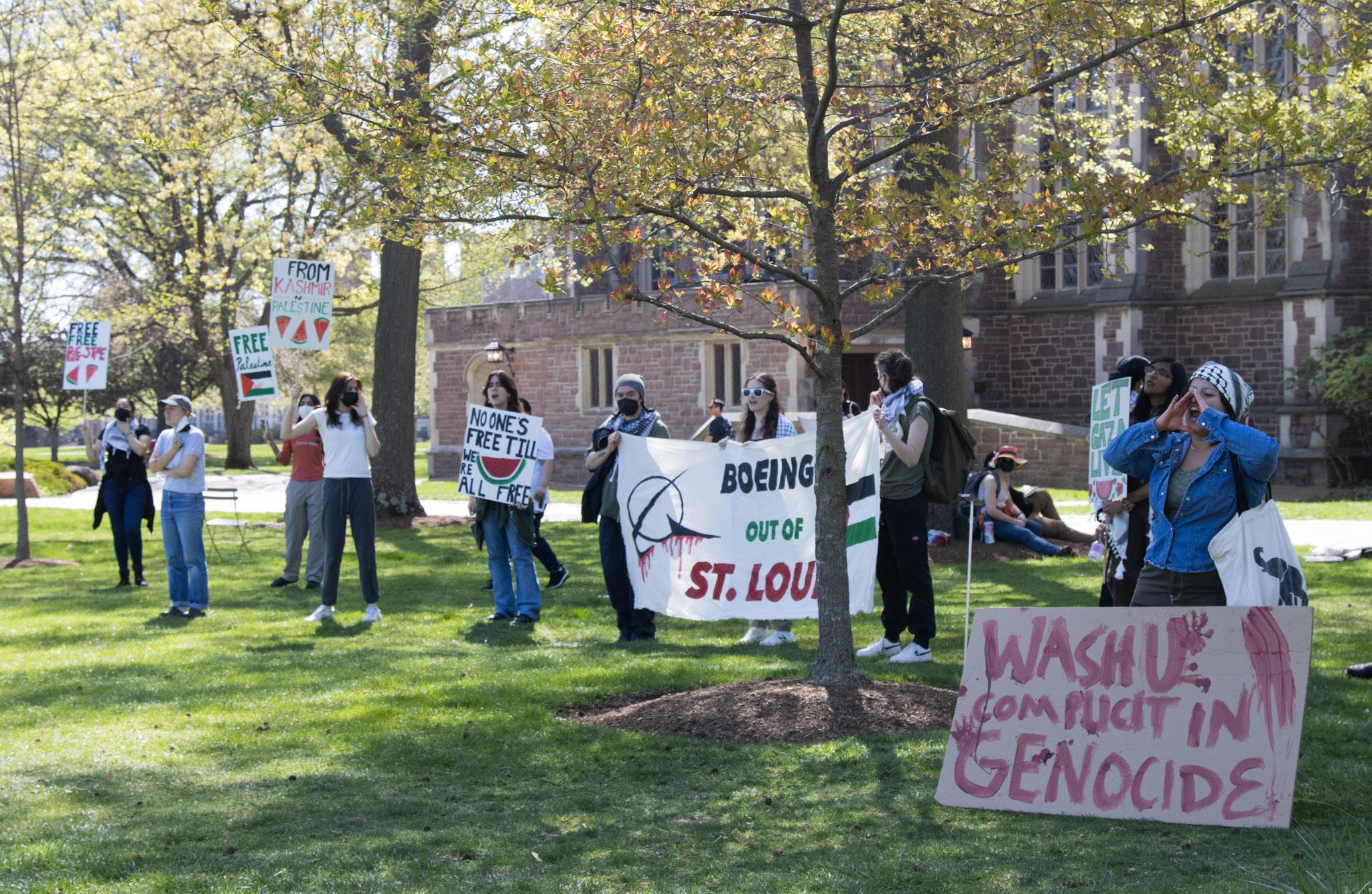
there’s no formal accountability, so we thought it was necessary to make it clear that the demand still stands.”
Daniel Cazares, Class of 2023, was one of the people issued a summons and said he hoped that the protest would deter students from attending WashU. “A few families stayed behind until the cops fully cleared the chapel,” Cazares said. “I doubt that their kids will come here, which to me is mission accomplished.”
Cazares also said that they hoped the protests made prospective students aware of how they thought WashU treats dissenting students.
“This is a place of violence,” Cazares said. “Don’t come here unless you want a cop’s hand on your neck.”
After leaving Graham Chapel, families stood outside for approximately 20 minutes as chanting from the protesters continued. Admissions staff then directed them to go to the Danforth University Center and later to lecture halls on the East End of campus.
Emily Small, a parent of a prospective student and a selfdescribed activist, said that she understood the students’ reasoning but that she disagreed with their tactics.
“I’m sympathetic to the cause, but this is not the way that you bring people together,” Small said. “They’ve just pissed off this entire
chapel full of people. That’s not good organizing.”
Small’s son, Phoenix Unzueta, said that he was disappointed with the timing of the protest but that it wouldn’t impact his decision to matriculate at WashU.
“I think it kind of ruins the experience of admitted students who are coming here wanting to experience campus and wanting to make a decision that’s going to impact the next four years of their life,” Unzueta said. “It won’t impact my decision, I just have a very limited time on campus today, and they’re wasting my time.”
Sophia Kalimian, a student accepted through Early Decision, said that she was scared by the protest.
“I think a lot of us chose WashU for the [large] Jewish population, and this is so scary,” Kalimian said. “I’m just gonna try and find people that share my values.”
After most people had left for the DUC, one parent, who asked to remain anonymous, stayed behind to film the students and chanted quietly with them before leaving.
“I am very proud, especially that they’re standing for justice in Palestine,” he said. “I’ve never seen this diversity of different kinds of people standing for justice. I am very surprised.”
As the protesters outside waited for the roughly 10 students who were
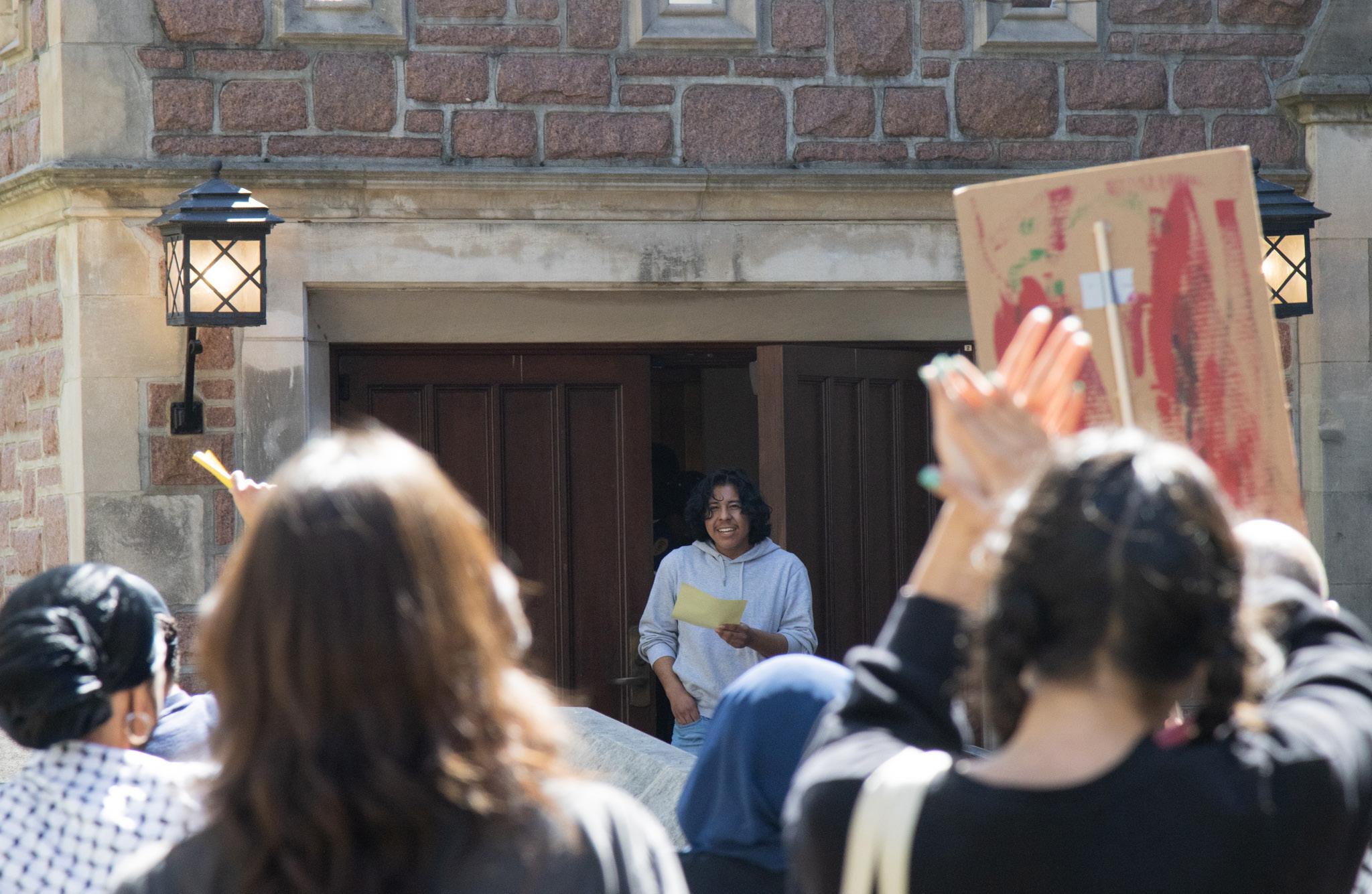
ATHLETE OF THE WEEK
Interview with standout WashU softball pitcher, Maria Brooks. (Sports, pg 7)
Chancellor Martin issues statement about Bear Day protest and egging incident
Chancellor Andrew Martin released a statement on April 17 reaffirming Washington University community guidelines. The statement responded to the Bear Day protest on April 13 and offered an update on an egging incident that occurred at the Bear’s Den (BD) dining hall on March 21.
“Both of these incidents were unacceptable and have caused harm to members of our community and to the university itself.” Martin wrote. “I’m writing to you today because we all should expect better of the WashU community.”
inside, they began to chant “IDF, KKK, WUPD are all the same,” referring to the Israeli Defense Forces.
Junior Maclean Kelley, one of the protesters who was served a court summons, said that the chant pointed out the similarities between the organizations.
“What [the chant] means is that all of these organizations are armed, are white supremacists, and [are] colonizing forces, and that’s why they’re all the same.” Inside the chapel, at around the same time, a video on the Resist WashU Instagram account story showed protesters continuing to chant.
“There is only one solution, intifada revolution,” they shouted.
Additionally, as University administrators and WUPD officers walked inside and around Graham Chapel, protesters yelled “shame” at them.
Kelley, as well as many of the other protesters, also called out individual University administrators, including Chancellor Martin and Dean of Students Rob Wild, at some points chanting directly at them as they walked around Graham.
“I think Dr. G[onzalez] should be really embarrassed by how they treat students who are talking back to the University,” Kelley said. “Students are gonna keep shutting sh*t down as long as the University doesn’t listen to our demands.”
On the evening of the protest, Vice Chancellor of Student Affairs Dr. Anna Gonzalez sent out a University-wide email alongside Provost Beverly Wendland explaining that the students involved in the protest would be “subject to further disciplinary action” in addition to the court summons, and that non-students involved would be banned from campus.
Gonzalez also criticized the protesters for staging the protest during Bear Day as well as language used in their chants.
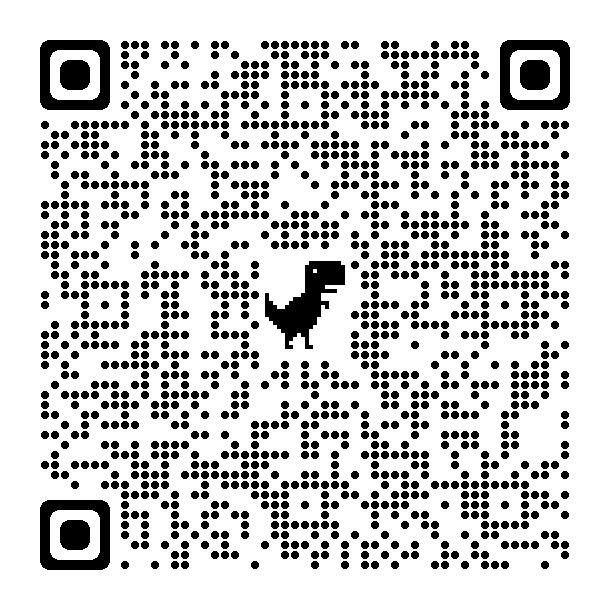
Martin said the demonstration at Graham Chapel was a “blatant” violation of the WashU Demonstrations and Disruption Policy since it disrupted a University function.
Twelve protestors at the event received court summons for trespassing, and Martin confirmed in his statement that WashU has initiated their student conduct process for the three WashU students who were protesting. Additionally, the protestors who are not students will be banned from campus and arrested if they return.
Martin also wrote that the investigation into the egging incident was completed on April 16.
“Students – both Greek and nonGreek – participated in an event organized by a fraternity chapter that involved activities that were distasteful and disruptive to our Sodexo dining services colleagues at the Bear’s Den, including, for example, throwing eggs,” Martin wrote.
He went on to clarify that the investigation revealed that the eggs were not thrown at dining hall workers.
“Although our Sodexo colleagues indicated that eggs were not thrown at them, the actions of those involved showed great disrespect and disregard for their well-being,” he wrote.
As a result of the incident, Martin stated that one of the involved organizations was suspended, and the other was placed on probation, lasting until Dec. 1, 2024. On the Campus Life section of WashU’s website, it states that Kappa Sigma is on social probation and temporary suspension, and that Alpha Phi is on temporary suspension.
Martin also clarified the investigation’s results regarding the usage of a racial slur by an individual involved in the incident.
“After reviewing all available evidence and speaking with witnesses, we cannot conclusively determine that this happened, and if it did, who said it or whether it might have been directed at any individual.”
Regardless of the conclusion about a potential slur being said, Martin wrote that he wanted to make it clear that WashU stands against all forms of racism, bigotry, harassment, and discrimination.
CONTACT BY POST ONE BROOKINGS DRIVE #1039 #320 DANFORTH UNIVERSITY CENTER ST. LOUIS, MO 63130-4899 CONTACT BY EMAIL EDITOR@STUDLIFE.COM NEWS@STUDLIFE.COM CALENDAR@STUDLIFE.COM CONTACT BY PHONE NEWSROOM 314.935.5995 ADVERTISING 314.935.4240 FAX 314.935.5938 The independent newspaper of Washington University in St. Louis since 1878 WWW.STUDLIFE.COM VOLUME 145, NO. 24 THURSDAY, APRIL 18, 2024
JOEL
MANAGING NEWS EDITOR NEWS EDITOR AVI HOLZMAN EDITOR-IN-CHIEF
ALIANA MEDIRATTA
SWIRNOFF
Protestors hold up pro-Palestine signs and chant outside of Graham Chapel.
NITSBERG
STUDENT LIFE BRI
LIFE SEE MARTIN, PAGE 2 Read the rest online:
Senior RJ Lucas walks out of Graham Chapel, holding a court summons, where other protestors are waiting for him.
BRI
|
NITSBERG | STUDENT
SLAM DUNK WUSlam snaps back into competition. (Scene, pg 4)
WashU to begin free English-language classes for refugees
MARTIN
from page 1
Washington University is launching Empower, a 26-week program to help refugees develop English language skills and general professional abilities.
Empower, which is free of charge and funded through a state grant, will take place Mondays and Wednesdays from 6-9 p.m. at the Delmar DiVine. The program is open to those who have refugee status, basic English skills, and a high school education. Two initial cohorts are planned for May 2024 and August 2024.
Empower is a part of the University’s larger strategic plan Here and Next. Specifically, it is through the “In St. Louis, For St. Louis” aspect of Here and Next, which aims to improve the St. Louis metropolitan area through various forms of programming. Empower will be offered through WashU’s School of Continuing & Professional Studies (CAPS).
CAPS Director of English Language Programs (ELP), Katie Blackburn Brown, said that ELP has traditionally only served WashU students.
“[The Mosaic Project] has been around for 10 years,” Lloyd said. “They’ve been working to connect foreign-born individuals in St. Louis for a while, so they have quite a big network. They were able to send out our website and a paragraph on our new program to around 4,000 contacts.”
Lloyd said that after filling out an information form on their website, the potential participant receives an intake phone call. The phone call is to identify whether the individual is a correct fit for the program. After the initial intake is done, CAPS does a more detailed informational form of the individual’s interests, nationality, and additional information.
The student will then do an English language
“We’ve never had any kind of externally facing programming,” Brown said. “When we were thinking, ‘ok, what can WashU do to serve the community?’ immigrants came up [as] an underserved population.” Director of Business Development and School Initiatives at CAPS, Jodie Lloyd, explained that the program is working in tandem with the International Institute and The Mosaic Project. The International Institute is a St. Louis immigrant service and information hub, while The Mosaic Project is a non-profit organization that connects immigrants in St. Louis to employers.
assessment to ensure their English language skills are sufficient Lloyd said. If their English is not at a high enough level, they will be referred to another organization that offers English language services.
One of the people who identified immigrants as a community in need of outreach is Junior Hannah Jon, a former St. Louis Fellow through the Gephardt Institute. Jon, a second-generation immigrant, interned with CAPS for the 2023 summer.
Jon, who majors in American Culture Studies with a focus on race and ethnicity, was particularly interested in working on CAPS’ immigrant research project due to her identity.
“Growing up in the U.S., I experienced microaggressions or just thinking things like ‘Oh, why does my family do that? I guess that’s not normal,’” Jon said. “Or even things like ‘Oh, my mom’s English isn’t the most fluent,’ and I’d notice how people would talk down to her in a condescending manner.”
Brown said that as part of her role, she has been researching how people conduct refugee education nationally.
“Through looking for models of this, we found that there weren’t many,” Brown said. “The U.S. isn’t
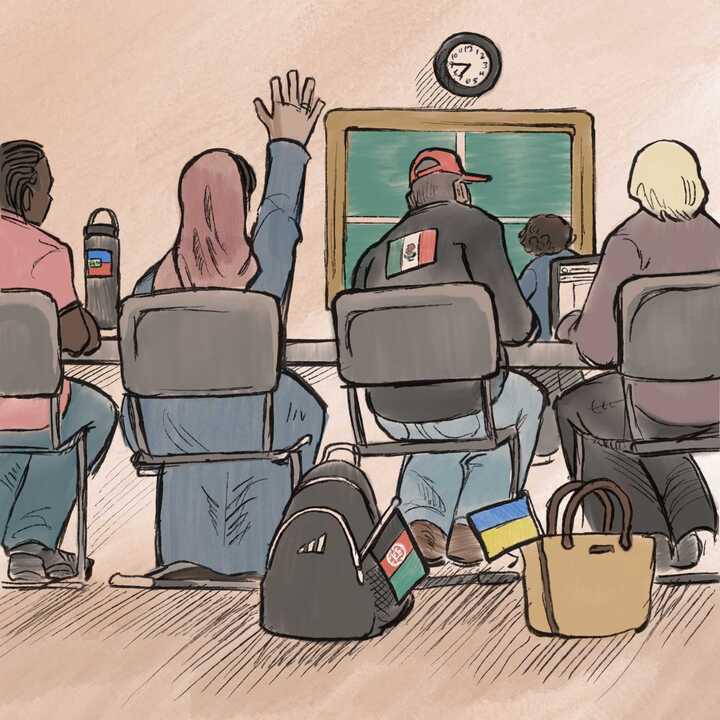
doing a lot, and it’s more based around community-based organizations or community colleges… Columbia had something like [Empower], but disbanded it.”
Brown said that while there are lower-level English-based resources, there is a need for higher-level English education for immigrants.
“There’s a lot of community-based, lower-level stuff to help refugees get a job at like Amazon, for example,” Brown said. “But what if they have a master’s degree from their home country? They just can’t communicate it or align their skills with a job in the U.S.”
Additionally, Brown went abroad to France, Belgium, Germany, and England to research how other nations conduct these types of classes for refugees. She said her model is mainly based on what she learned in France. “The most key facet is not just instruction,” Brown said. “It’s the hightouch: we’re gonna take no more than 60 refugees total and make sure nothing [in instruction] gets lost. We’re not just printing certificates; we want to help tangibly.”
Read the rest online:
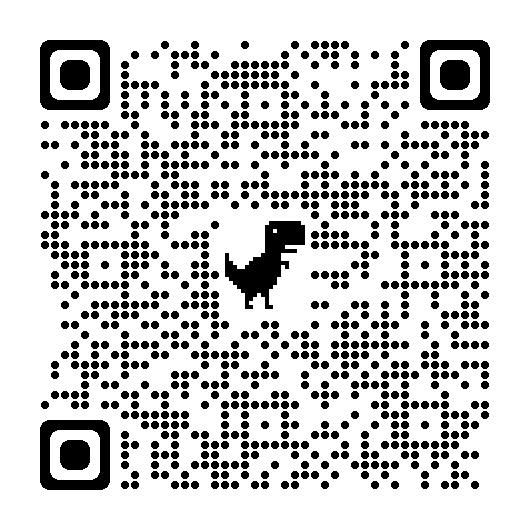
At WashU, we stand against anti-Blackness, racism, harassment, bigotry, and any form of discrimination against any group or individual,” he wrote. “The use of racial slurs directed at any individual or group to harass, intimidate, incite, or inflame is completely contrary to the standards of behavior we expect in our community.”
At the end of his statement, Martin wrote that he wanted to remind students it is both a privilege and a responsibility to be part of the WashU community.
“We are firmly committed to free expression and allow ample opportunity for voices to be heard on our campus, but…no one in our community, and certainly no one outside of it, has the right to disrupt the ability of others to learn, work, and fully participate in campus life,” Martin said.
He added that students who chose to participate in disruptive activities would be subject to swift action and emphasized what he views as WashU’s core values.
“The strength of our community is our greatest asset,” he wrote. “It is my sincere hope that we will move forward together through mutual respect, constructive dialogue, and care for one another.”

NEWS ALIANA MEDIRATTA | MANAGING NEWS EDITOR | NEWS@STUDLIFE.COM 2 STUDENT LIFE THURSDAY, APR 18, 2024
ZACH TRABITZ INVESTIGATIVE NEWS EDITOR
ILLUSTRATION BY ANAELDA RAMOS
broke a ceasefire and proceeded to rape, behead, burn, mutilate, slaughter, and kidnap innocents. I cannot say that I am surprised by the articulation of the world’s reaction to an attack on Israel. Why? Because it is clear that many self-proclaimed anti-Zionists will take any opportunity to vilify the Jewish state in order to make Jewish suffering palatable.
People who are truly pro-Palestinian — or even pro-humanitarian — should be anti-Hamas, which, in my mind, entails support for Israel in its mission to bring the hostages home and dismantle Hamas. Since Israel withdrew from Gaza in 2005 and Hamas took control in 2007, the citizens of Gaza have been denied the means to create a robust economy and maintain security — basic components of any society that should be the core mission of every government. Granted, the Israeli and Egyptian blockade of the Gaza Strip has, to an extent, adversely impacted the people of Gaza, but the blockade is necessary to mitigate the threat that Hamas poses by restricting their ability to import weapons used to attack Israel.
Meanwhile, Hamas — the world’s second wealthiest terrorist organization — is diverting economic
assistance and humanitarian aid intended to help raise the citizenry in Gaza to fund terrorism. By way of example, Hamas has literally ripped water pipelines donated by the European Union out of the ground and turned them into rockets. Hamas’ rockets are fired indiscriminately at civilian population centers in Israel, targeting Israeli Jews and Arabs alike. What is also very troubling is that, according to Israel Defense Forces (IDF) spokesman Daniel Hagari, 20% of those rockets fail and fall back on Gaza. Interestingly enough, the Hamas-run Gaza Ministry of Health never attributes the fatalities or injuries from these failures properly and lumps these figures in with those inflicted by Israeli forces.
With the billions of dollars each year being allocated to Hamas, Gaza should have an infrastructure that rivals even the most advanced Western cities. But by ensuring that the conflict endures and that peace is never achieved, Hamas leaders will continue to line their pockets with billions as money is poured into Gaza. To be crystal clear, the citizens of Gaza are suffering because of the actions and criminal behavior of the terrorist regime in power.
Hamas is a dangerous regime on numerous levels, and, in accordance with that claim, the United States has officially designated Hamas as a foreign terrorist organization. There are no recurring elections that keep Hamas leaders in their positions of power, and there is no mechanism for the people of Gaza to put leaders in power who would better represent their interests. Instead of acting in the best interest of the people of Gaza, Hamas chose to violently eliminate Fatah, the minority coalition, in a civil war in Gaza, aiming to stifle any threat to their grip on power. By contrast, Israel is clearly and fundamentally a representative democracy, with people of diverse backgrounds, including Arabs and Jews, holding elected office.
Read the rest online:
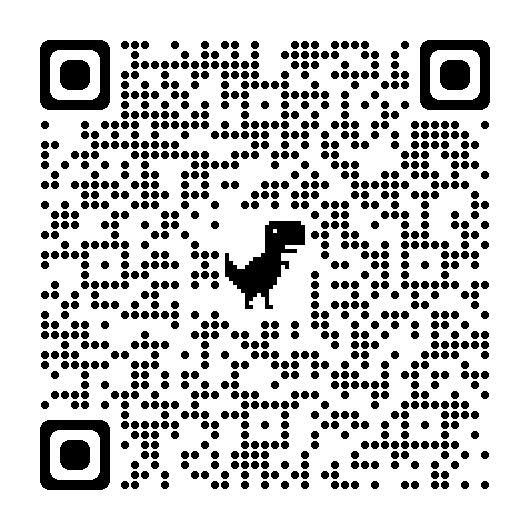
As members of Jewish Students for Palestine (JSP), we are part of a long history of anti-Zionist Jews. Anti-Zionism has existed among Jewish populations since before World War II, as explained by Benjamin Balthaser, a scholar and associate professor at Indiana University South Bend. In the early 20th century, Zionism was one of many theoretical movements across various Jewish populations. As Balthaser outlines, one faction of anti-Zionist Jews — who advocated for the right to self-determination in the Eastern European countries in which they were raised — were wiped out during the Holocaust. In the years directly following the war, it was a prevailing opinion among American Jews that Zionism and its values did not represent the Jewish majority: a part of history also explained by Zachary Lockman, professor of Middle Eastern Studies at New York University.
Zionism is a direct extension of British settler colonialism in the Middle East. As Charles Glass writes, “Without Great Britain, there would not have been an Israel for the Yishuv, or a catastrophe — nakba, in Arabic — for Palestine’s Arab majority.” Palestinians remember the early days of Israel as a project of forced removal from their homes. These early colonial intentions linger in modern policy, as the Israeli military has displaced 1.7 million people, killed over 30,000 individuals, and contemplated a transfer (in other words, ethnic cleansing) of Palestinians into Egypt.
Despite Jews widely opposing Zionism in the 1930s and 1940s, today it is said that Israel’s existence is intrinsic to our safety as a people. Those of us who recognize that the assumption Israel is the only place we are safe is, in part, predicated on antisemitic rhetoric (telling us we do not belong elsewhere) often feel ostracized. We feel as if we are betraying our community and the one place which we have been told protects us. But we know that is far from true.
In recent days, the
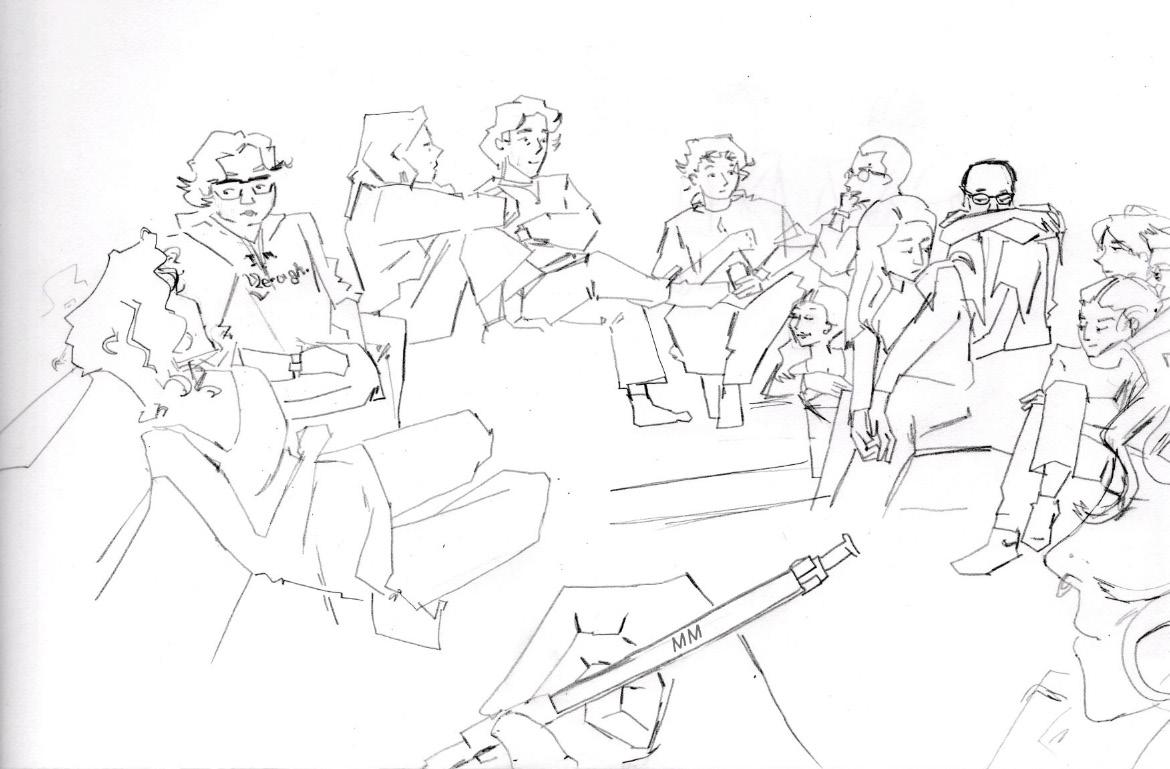
ILLUSTRATION COURTESY OF MEL M (JSP)
Students for Palestine held its first meeting on April 5.
colonialist ideology of Zionism and subsequent genocide of the Palestinian people has played out on the world stage. As this occurs, JSP’s condemnation of Israel and its actions has caused us to reflect on the historical relationship between anti-Zionism and the Jewish community. As anti-Zionists, we have faded into a loud minority voice in Jewish spaces, and the history of Jewish resistance to Israel is hardly taught. The stories of The Bundists (who were largely massacred during World War II) and the American Council for Judaism (who began organizing in the 1940s) remain unspoken. Instead, Jews are told that Zionism is what we all wanted all along.
According to the Pew
Research Center, the percentage of white evangelical Christians in support of Israel’s government is comparable to the percentage of Jews in support of Israel’s government. This is shown in the statistic, “White evangelical Protestants are most likely to express favorable views of the Israeli government (71%). Among Jewish adults, 54% say they have a favorable view of the Israeli government.” Archival data shows that 10 years ago, more evangelical Christians than Jews believed that God gave Israel to the Jewish people. Despite the large presence of evangelical Christians in support of Israel — lobbying congress and dominating the American conservative Zionist sphere — the issue of Israel
and Palestine is too often painted as a purely JewishMuslim conflict. In reality, Zionism is not as strongly connected to Judaism as popular narrative tends to depict it. Many Jews have continually opposed Zionism, and many evangelical Christians have been integral in supporting Israeli occupation efforts.
In 2012, scholar Judith Butler wrote the book “Parting Ways: Jewishness and the Critique of Zionism.”
Read the rest online:


SYLVIE RICHARDS | MANAGING FORUM EDITOR | FORUM@STUDLIFE.COM STUDENT LIFE 3 THURSDAY, APR 18, 2024 VOLUME 145, NO. 24 Copyright © 2024 Washington University Student Media, Inc. (WUSMI). Student Life is a financially and editorially independent, student-run newspaper serving the Washington University community. Our newspaper is a publication of WUSMI and does not necessarily represent the views of the Washington University administration. Avi Holzman Nina Giraldo Editors-in-Chief editor@studlife.com Aliana Mediratta Managing News Editor news@studlife.com Alice Gottesman Managing Scene Editor scene@studlife.com Sylvie Richards Managing Forum Editor forum@studlife.com Riley Herron Managing Sports Editor sports@studlife.com Cathay Poulsen Managing Chief of Copy Sydney Tran Head of Design designers@studlife.com Jaime Hebel Head of Illustration Bri Nitsberg Managing Photo Editor photo@studlife.com Camden Maggard Head of Social Media Tim Mellman Managing Newsletter Editor emailedition@studlife.com Sanchali Pothuru Managing Multimedia Editor Lauren Smith Special Issues Editor Zach Trabitz Lily Taylor Investigative News Editors Will Rosenblum Zara Shariff Senior Scene Editors Jasmine Stone Jordan Spector Amelia Raden Senior Forum Editors Ian Heft Elias Kokinos Senior Sports Editors Zoe Oppenheimer Alan Zhou Senior Photo Editors Mia Burkholder Chief of Copy Tanvi Gorre Nina Laser Aliza Lubitz Elizabeth Stump Joel Swirnoff News Editors Olivia Lee Sophia Hellman Junior Scene Editors Dion Hines David Ciorba Junior Forum Editors Sam Powers Isabella Diaz-Mira Junior Photo Editors Kate Westfall Design Editor Grayce Cooper Junior Socials Editor Quinn Moore Newsletter Editor Matt Eisner Lewis Rand Elaheh Khazi Junior Sports Editors Anaelda Ramos Illustration Editor Mireya Coffman Alan Knight Multimedia Editors Ava Giere Samantha Elegant Copy Editors Dijkstra Liu Zach Cohn Senior Web Editors Madison Yue Hadia Khatri DEI Editors Adrienne Levin Coleman General Manager a.coleman@studlife.com Sarah Huff Advertising Sales Manager huffs@studlife.com Jewish values say no to Zionism Letter to the Editor: Speaking truth to hatred FORUM Reading the remarkably disturbing opinion submission from a WashU American Culture Studies lecturer, I could not help but think about a more widespread issue: the troubling narrative being spread about Israel and the implications of that for the Jewish community at large. I firmly believe that anyone who genuinely cares about civilians in Gaza and who chooses to express that care with anti-Israel sentiment is misguided at best and, at worst, is just using this conflict as an excuse to perpetuate antisemitism, completely neglecting to address the evil of the Hamas terror regime. I am particularly dismayed by the lecturer calling into question the barbarity of Hamas’ attack on Oct. 7 that the terrorists proudly recorded for the world to see, drawing from sources like The Electronic Intifada to make his point. Hamas terrorists
MATTHEW ISAACS CLASS OF 2027 JORDAN SPECTOR LILA STEINBACH SENIOR FORUM EDITOR CLASS OF 2024
Jewish
OPINION SUBMISSION
SCENE
Make
me a match: Jewish matchmaker proves matchmaking is still in style
Matchmaker Aleeza
Ben Shalom isn’t messing around when it comes to finding love, and college, she believes, is the perfect time to find a partner. The star of the popular Netflix reality show “Jewish Matchmaking,” Ben Shalom, has helped bring together more than 200 couples and offered her advice to WashU students during her talk in Graham Chapel on April 9. “Don’t leave university without your person. And you [may need to] go back and get higher education and get another degree. More importantly than leaving with your degree — everybody’s gonna graduate and you’re gonna get a degree — find your person. That should be your mission,” Ben Shalom said. Prior to her talk, Student Life met with Ben Shalom. Despite three intermissions to deal with some wasp attacks, she was just as enthusiastic and passionate as she is on her Netflix show. During her talk, Ben Shalom revealed that she did not plan to be a matchmaker after graduating from the University of Pittsburgh with a degree in Interdisciplinary Studies. “You know what that means? Nothing! I’m qualified to do nothing!” she said. Post-graduation, she worked odd jobs until she started as a volunteer matchmaker. Not long after, her career snowballed dramatically. “Shidduch” is the Hebrew word for matchmaking, a Jewish tradition stemming from ancient history and now existing in different forms in multiple Jewish communities. It’s popular in Orthodox Judaism, which is the more observant Jewish denomination. Traditional Jewish matchmaking entails matching two Jewish people together to
eventually marry. Although the concept has changed to become more modern, some Jewish singles still look to matchmakers for dating advice. Ben Shalom has made a name for herself by doing just that.
“From volunteer matchmaking, I started coaching, and then I started training coaches and training matchmakers. And then I started this company because I was so passionate about matchmaking that there was nothing else I wanted to do in the world,” Ben Shalom said.
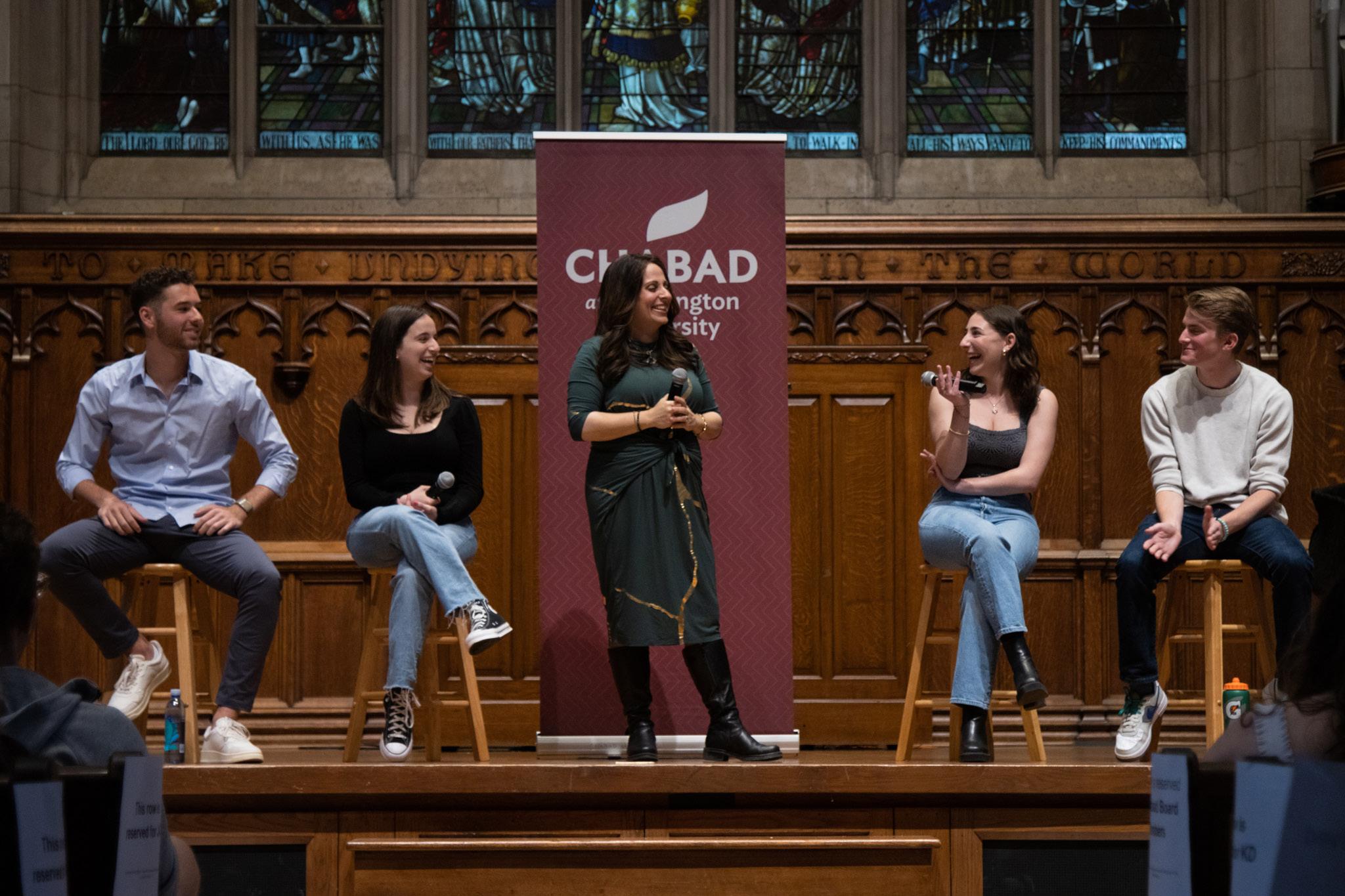
Ben Shalom emphasized how matchmaking, and the portrayal of the practice on the show, can bring positivity to the Jewish community in a time of particular tension and division. Although some may disagree about whether college is more about finding a partner than getting your degree, Jewish matchmaking brings people together, not only as romantic partners but as a community. On the show, Ben Shalom is able to help spread that message.
Ben Shalom’s involvement with Jewish Matchmaking began when she was put in contact with Netflix, which, following the success of the show Indian Matchmaking, was on the hunt for a Jewish matchmaker to serve as the star of their pilot. She jokes that she was actually matchmade to the show by another matchmaker friend of hers.
“One of my matchmaker friends made the introduction because she said ‘I don’t want to do this job. Flying around the world to match people, that sounds terrible! I gave him your
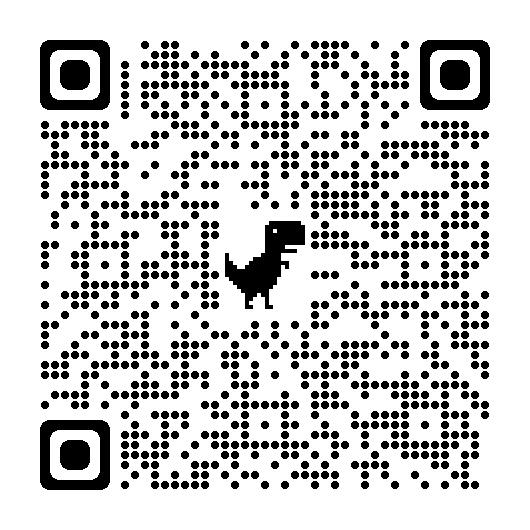
Yes, Poet(ic Pulse)! WUSlam hosts inaugural intercollegiate poetry slam
Sure, it was a poetry reading. But don’t imagine quiet, tasteful coffeehouse gatherings populated by berets and tweed, or nodding off with a classmate’s perplexing prose in firstperiod English — think stomps, snaps, and shouts. Think lively banter, sharp choreography, and most importantly, really good poetry – the kind that strikes a chord, crystalizes an emotion you’d never quite
been able to grasp before in a single, devastating line. But you don’t have to imagine, because on Saturday, April 13, Knight Hall’s Emerson Auditorium was filled up by it. Washington University Slam Poetry, or WUSlam, is one of the oldest student groups on campus and the only spoken-word poetry group at WashU. Besides weekly general meetings, where all members are invited to spend an hour reading, writing, and performing their poetry,
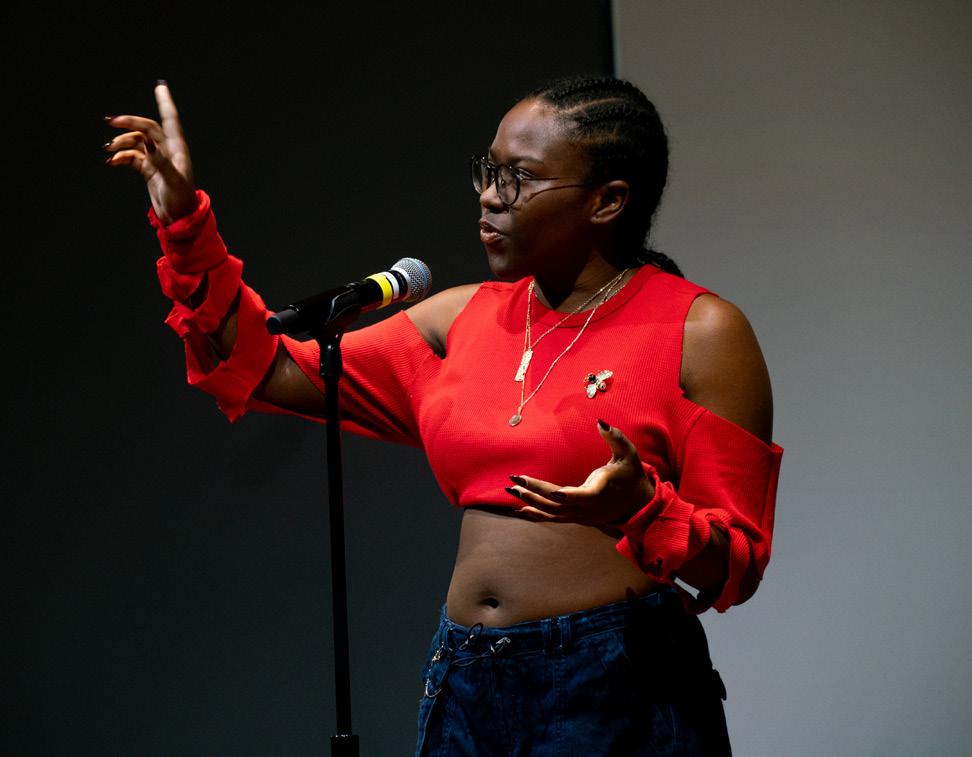
WUSlam also has the audition-based Performance Crew (P-Crew), who formally compete in slams. The group was hit hard when forced to go virtual during the COVID19 pandemic and has struggled to regain its original membership since. The pandemic forced the intercollegiate circuit that WUSlam P-Crew had previously competed in — College Unions Poetry Slam Invitational, or CUPSI — to cancel its tournaments. The organization has not hosted a competition in the four years since, depriving collegiate slam poets of a larger stage outside of their campuses.
Instead, WUSlam decided to take matters into their own hands by establishing Poetic Pulse, their inaugural intercollegiate slam with New York University’s SLAM! at NYU.
Slam poetry is primarily performance-based, emphasizing the poet’s delivery, conviction, and emotion, alongside the quality and style of their pieces. Poets cannot utilize
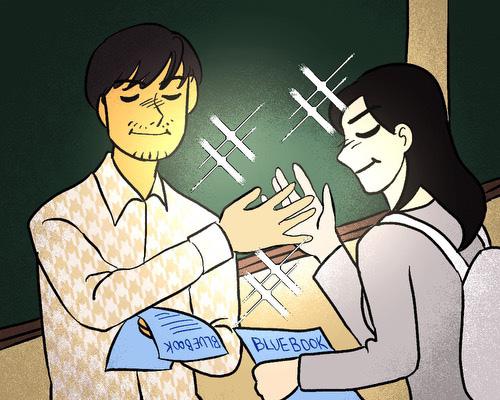
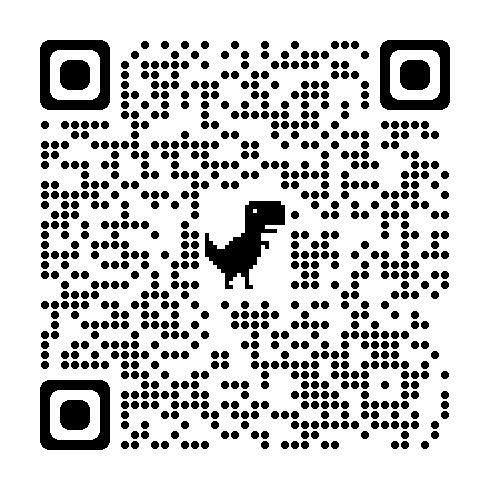
anything outside their bodies — like props, costumes, or music — challenging them to connect with audiences only with their spoken word. Originating from Chicago clubs in the 1980s as an attempt to modernize poetry for popular audiences, slams are a far cry from the subdued, melancholic soliloquy typically associated with the form. As a medium, slam poetry sets itself apart with the constant auditory buzz — audiences are encouraged to snap, stomp, and whoop “yes, poet!” in the midst of reading as a form of live feedback. With such significant subject matter, the back-and-forth response is crucial to creating an equal, conversational bond between the performer and their audience.
“I think where page poetry finds meaning in the words and the way that they’re arranged on the page, slam poetry finds meaning in the performance. And so it is like a conversation between the poet and the audience, in which the poet is using
their performance to further the message that they want to send and the story they’re trying to tell,” explained WUSlam president, senior Jebron Perkins. Poems can be on any topic, from the ironically comical (shellfish allergies!) to intimately confessional. Most poems tend to fall on the latter end of the spectrum, providing a safe space for poets to reflect on aspects of their personal identity and relationships: friends, family, gender, sexuality, race, class, and religion are often major themes. WUSlam vice president, sophomore Seamus Curtin, said that although the topics of each poem vary, they are united by performance. “It’s really just whatever you feel is emotional enough that you want to share with the world, and [slam poetry] really is something that needs to be heard and not read. Sometimes it’s published, but it’s never going to be the same. There’s a certain amount of emotional vulnerability that I think you get in live performance.”
Curtin started Saturday’s slam as the “sacrificial poet,” reading his piece, “I’m scared of drowning, which is ironic” to help the panel of three judges calibrate their scoring system. With passionate, building delivery, voice cracking with emotional admissions, Curtin’s poem set the stage for an afternoon of similarly powerful pieces.
WUSlam senior Elizabeth Zeng officially began the slam with “Hands Speak,” a piece reckoning with mental illness and cultural and familial acceptance. The poem delivers just as much sharp gesturization as the title suggests, with Zeng utilizing her body in practiced choreography as an extension of her words.
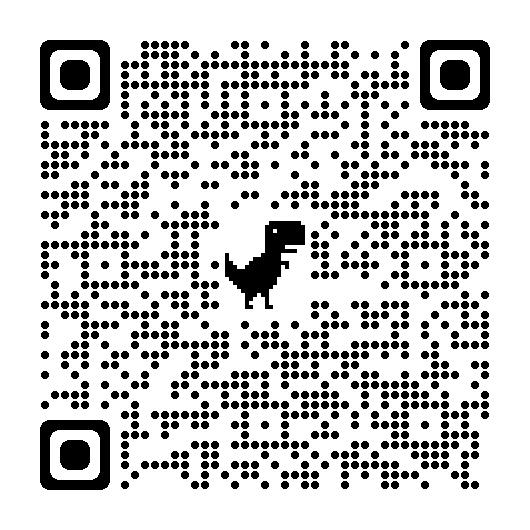

ALICE GOTTESMAN | MANAGING SCENE EDITOR | SCENE@STUDLIFE.COM 4 STUDENT LIFE THURSDAY, APR 18, 2024
number so pick up the phone when they call,’”
ABBIE SAPIRA CONTRIBUTING WRITER LORE WANG STAFF WRITER Caption this! Enter this week’s contest Scan the QR code to enter your submission by 11:59 p.m. on Monday. 04/10 WINNERS First place I’d help you but unfortunately this machine doesn’t take bear bucks Ben McKane, Current WashU Student Second place Poor Hal, I guess shrinkflation is a thing. Too bad it hasn’t hit WashU tuition yet. Sean Jacobs, Relative of Student Third place Someone should order this guy soon. He’s perishable! Carolina Pedraza, Current WashU Student CAPTION CONTEST ILLUSTRATION BY JOOHEE KIM ILLUSTRATION BY ANAELDA RAMOS BRI
NITSBERG | STUDENT LIFE
Netflix star Aleeza Ben Shalom enlisted the audience to find matches for four students on the Graham Chapel stage.
ALAN ZHOU | STUDENT LIFE
Read the rest online: Read the rest online:
Students participated in the Inaugural Intercollegiate Poetry Slam on April 13.
WashU KSA and WashU KISS put on annual showcase
Association (KSA) and WashU Korean International Student Society (KISS) is their largest event of the year — a completely outdoor celebration of Korean culture. Promoted by a beautifully painted mural on the underpass, this year’s Spirit of Korea was a huge success. Onlookers were packed around the outdoor stage on the South 40. SOK began at around 5 p.m., kicking off the night with Korean food and activities. The food served included kimbap, japchae, and bulgogi, which audience members enjoyed while partaking in the activities set up near the stage. After an hour of buffet indulgences, the show began.
The production included both traditional and modern performances that ranged from purely vocal acts to percussion performances to K-pop dances. In particular, K-pop dance performances were the most popular and numerous of the varying types of acts in the SOK showcase. With over 100 students performing in 19 different acts, the entire showcase lasted about 2 ½ hours, and audience members loved every minute of it.
SOK differs from other affinity group showcases largely because of the location and nature of the show. For one, the show takes place right on the South 40 and is free to all students. The stage was set up directly outside Ursa’s Fireside, across from the Clocktower. The casual, open-air setting lends itself to a welcoming and accessible atmosphere, inviting avid fans, South 40 residents, and passersby alike to watch the spectacle. The outdoor environment also allows the vibrant music of the show to echo through the entire South 40 during the show. The evening light of the sunset casts a golden glow on the performance. Spectators crowded around the outdoor stage, some sitting near the front and others standing around the back for a better view.
SOK opened with a performance from the KISS band, followed by two dance performances, Taekwondo, a singing performance, and Samulnori (Korean drums). The KISS band featured R&B music performed by two guitarists, a drummer, and rotating vocalists. Following these performances were a series of K-pop dances preceding performances by Standing Drums and an executive board dance with SOK’s coordinators. The dances — a highlight of the show — made up the majority of the performances. With extremely wellsynchronized movements and complicated choreography, SOK’s dance performances were mesmerizing to watch.
PUZZLE PUZZLE Mania
Each song was met with cheers and screams from the crowd, who either recognized the song or were supporting their friends on stage. An element of the showcase that added to its appeal was the coordination of the costumes; each dancer’s outfit was unique, although they all matched to each other and the theme of the song. The level of detail in the choreography was impressive, and the numerous routines were balanced by the addition of the other acts in the showcase. Some crowd favorites were “Helicopter” by CLC, “Standing Drums,” and “7th Sense” by NCT U. In “Helicopter,” the performers’ costumes were formal and completely white with gold accents, while in “7th Sense,” the costumes included masks that the performers removed in the middle of the dance. “Standing Drums” not only boasted great music but was an entire synchronized routine.
Overall, with an eager crowd packed into the area between Ursa’s and the Clocktower, SOK continued to draw viewers as it has in the past. As a celebrated tradition, the annual showcase will continue to grow and thrive over the coming years. The organizers’ attention to detail as well as the characteristic outdoor ambiance facilitated the delight of the crowd and passersby in the South 40. The countless hours the performers and organizers put into setting up the showcase paid off with another successful year.


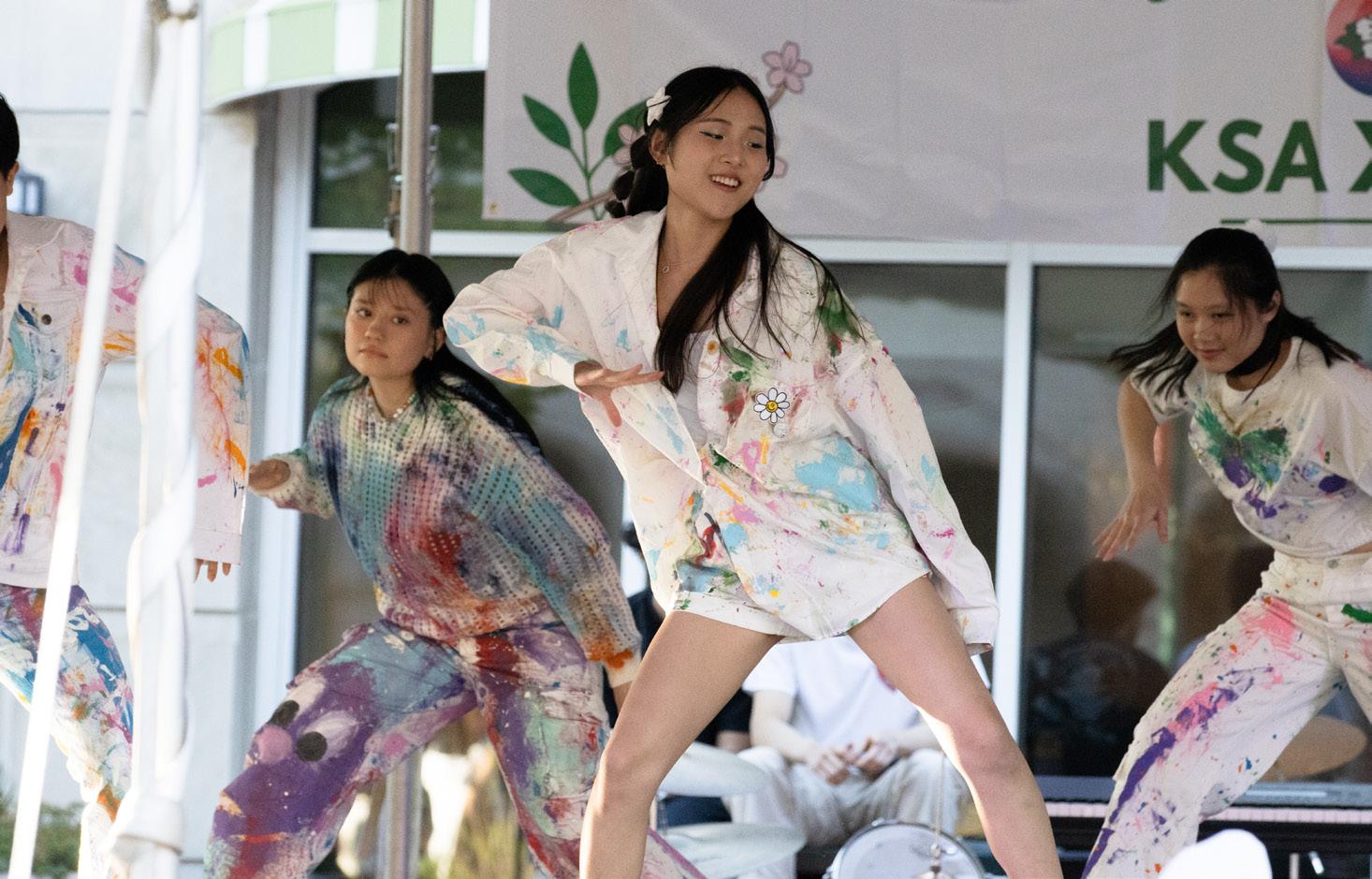
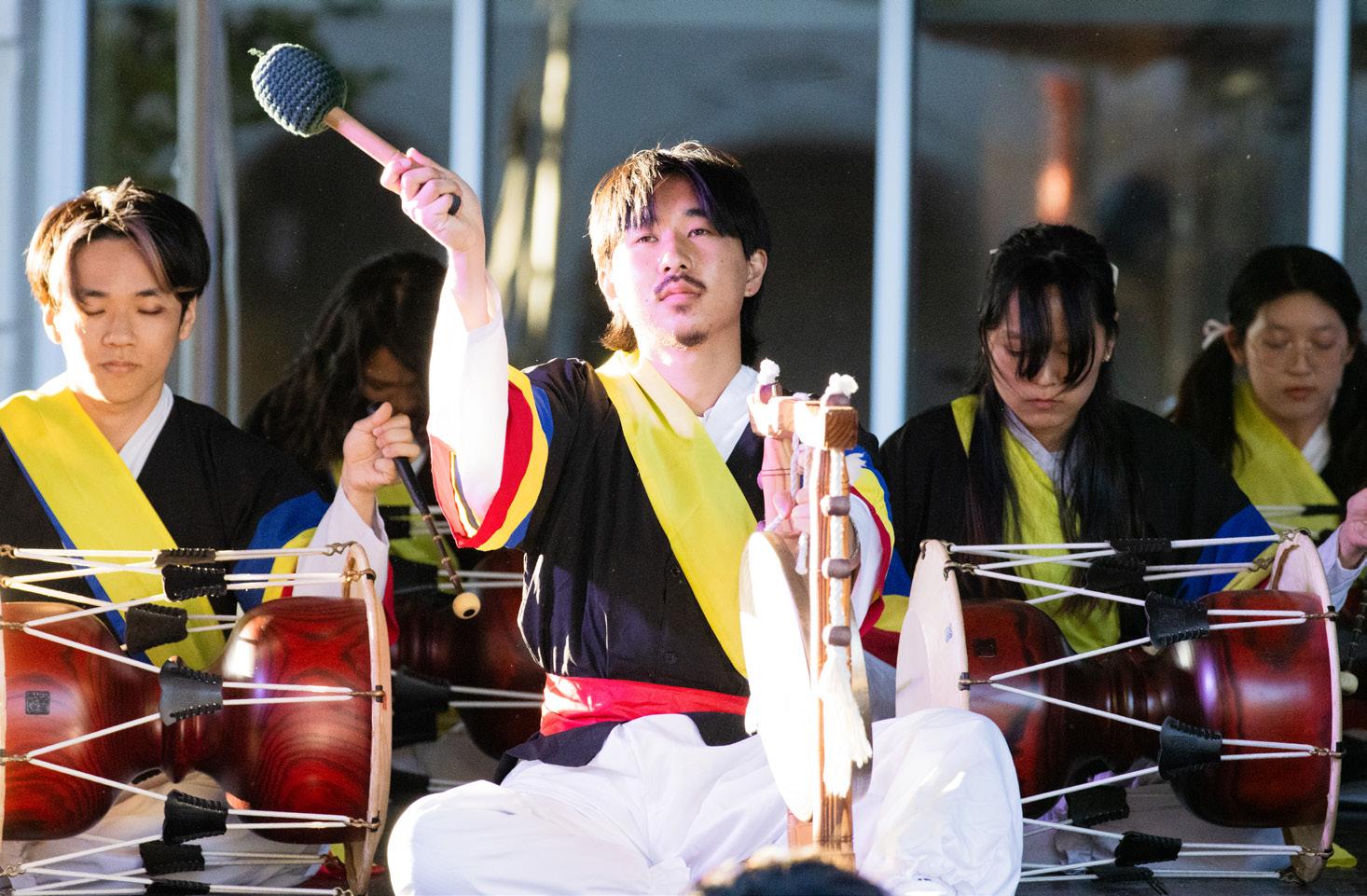



ACROSS 1 Keats wrote one to a nightingale, Shelley wrote one to the west wind
4 Poet Li Bai's native country
6 'Poe'-etic NFL player?
7 "You ___ __ sunshine"
8 Oliver who asked "Tell me, what is it you plan to do with your one wild and precious life?"
DOWN 1 "Having a Coke with You"
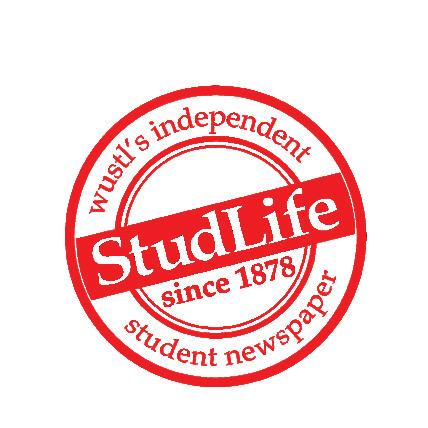
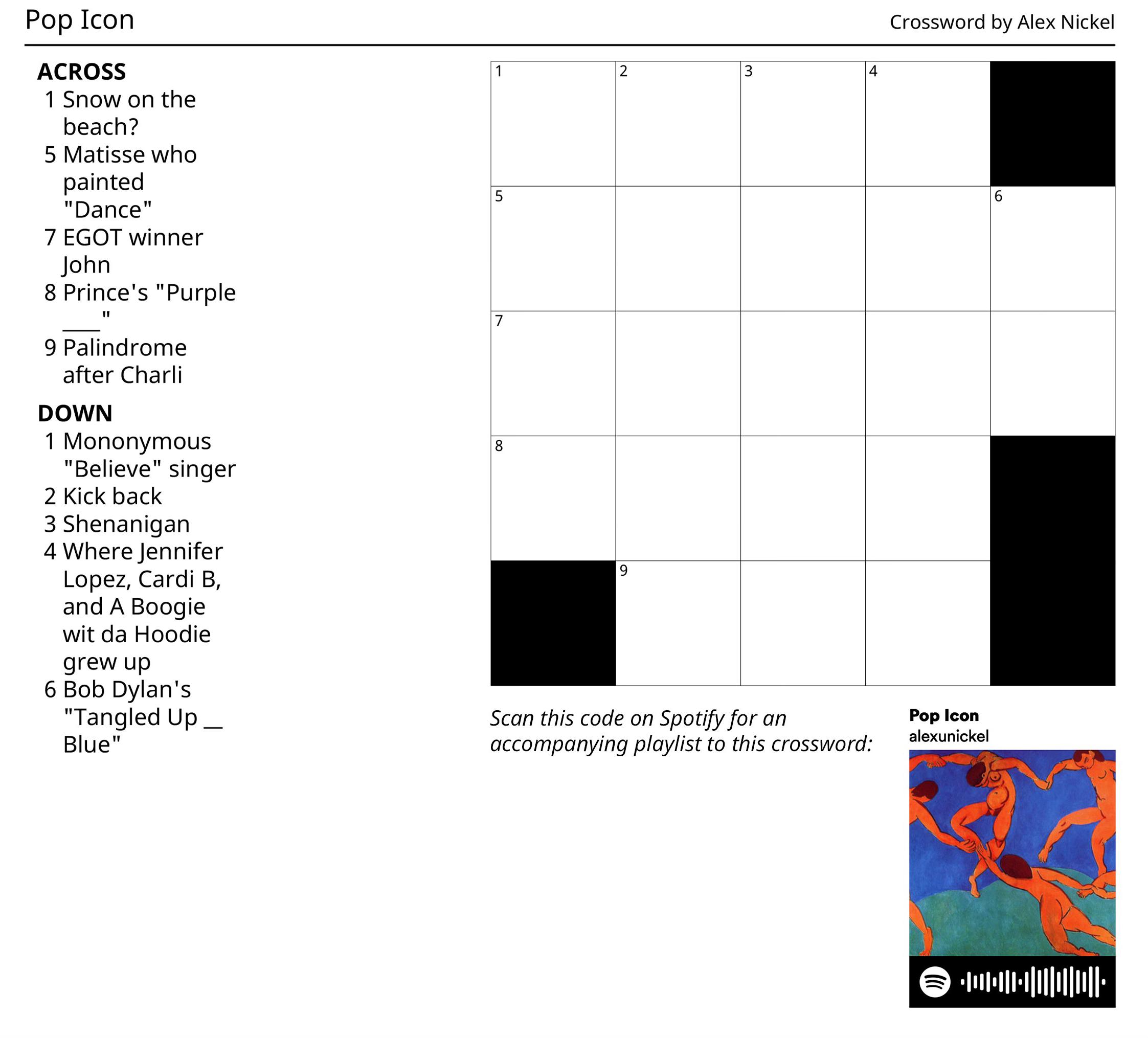
SPONSORED BY:
ALICE GOTTESMAN | MANAGING SCENE EDITOR | SCENE@STUDLIFE.COM STUDENT LIFE 5 THURSDAY, APR 18, 2024 STUDLIFE.COM Wherever you are, stay connected: Subscribe to our free e-newsletter... head to studlife.com now and sign up! FACEBOOK.COM/STUDLIFE @ STUDENTLIFENEWSPAPER @ STUDLIFE
Friday morning, on the sunny walk to class, a new structure had been
to the South 40: an outdoor stage. This
added
stage was used later that day for the Spirit of Korea (SOK) showcase, April 12. This collaboration between WashU Korean Students
ELIZABETH GRIEVE STAFF WRITER
1 O 2 D 3 E 4 C H I N 5 A 6 R A V E N 7 A R E M Y 8 M A R Y
ISABELLA DIAZ-MIRA | STUDENT LIFE KISS and SOK fire up the South 40 with their showcase of modern and contemporary song and dance.
Waxing Poetic Crossword by Alex Nickel
poet Frank 2 School observer? 3 Satan, to Eve in “Paradise Lost”
week’s solution
Last
SPORTS
“A little bit of vengeance”: Softball earns series win over No. 6 Case Western Reserve
9-3 in University Athletic Association (UAA) play, now tied for first with CWRU.
On April 2, 2023, the Washington University softball team was at a low point. The Bears had just been swept by the Case Western Reserve University (CWRU) Spartans, who at the time were ranked eighth in the country. The sweep brought WashU’s losing streak to five straight, and their season record fell to 9-13. The Bears seemed outmatched throughout the entire series, outscored 19-7 across the four games.
One year later, however, the team was determined to write a different story. This time around, the Bears would host CWRU, now No. 6 in the country and unbeaten in University Athletic Association (UAA) play, with the top spot in the UAA on the line. As the Bears prepared for the April 12 series opener, their anticipation was no secret. “The Case weekend is definitely the series we always have circled on our calendar. They’re definitely our biggest in-conference rivals,” junior center fielder Maggie Baumstark said after the series. “We were coming back this year with a big chip on our shoulder, a little bit of vengeance.”
With that motivation behind them, WashU was able to secure the series victory, winning three out of four games. With the result, the Bears, who are unranked in the national Top 25, sit at 20-8 on the year and
“The only difference between us and them is a number in front of their name and a good year last year,” head coach Casey Cromwell said after the series. WashU was able to win the final three games of the series after dropping the opener on Friday. In the 3-1 loss, the Bears were shut down offensively until the seventh inning, with Baumstark’s two-out RBI double preventing a shutout. Though junior pitcher Jordan Rossi allowed just three runs in a complete game on the mound, the Bears could not manage much offense, logging just four hits, and Rossi was tagged with her first loss of the season.
The Bears responded on Saturday by sweeping the doubleheader, winning the first game 5-2, then shutting out the Spartans 3-0.
In the first game, CWRU struck early, getting out to a 2-0 lead in the second inning. However, the Bears were able to put together a fiverun fifth inning to earn the comeback victory. WashU’s lack of solid contact was no problem in the inning, as the lineup relied on bunt singles and sacrifice plays to advance baserunners.

The Bears upset No. 6
“You don’t have to be a hero. You don’t need to be hitting doubles, home runs at every bat,” Baumstark, who began the inning with a bunt single, said. “[If] you get yourself on base and you make them make plays, something good is going to happen.”
That mentality seemed to be on display as the Bears scored their fifth run of the inning. After junior Olivia Craycraft hit an infield single to move first-year Kennedy Grippo to third base, Grippo stole home during the next atbat, stretching WashU to 5-2.
The Bears were helped all weekend by strong pitching, including a complete game in the first Saturday win by junior Jamie Burgasser.
In Saturday’s second game, the Bears found more success in the pitching circle as firstyear Maria Brooks pitched her third complete-game shutout of the season. Two RBI singles from junior Natalia Pilpil and an RBI triple from sophomore Sydney Schneider
Western, ending
LYDIA NICHOLSON | STUDENT LIFE
Spartans’ undefeated start to conference play.
were enough to secure the 3-0 win for the Bears.
In the series finale on Sunday, WashU sent Brooks back onto the mound to start the game. Cromwell said that other pitchers were available to enter in relief if needed, but there was ultimately no need for the bullpen as Brooks worked another complete game, leading the Bears to a 3-1 win.
On the offensive side Sunday, junior shortstop Taylor Geluck got the Bears on the scoreboard first, driving in two runs with a double in the third inning. Baumstark added an RBI single in the fourth inning to increase the Bears’ lead to three. Baumstark also made a big contribution on defense in
the game, robbing a CWRU hitter of extra bases in the fourth inning. With two outs and a runner on second, it seemed like the Spartans would score their first run after their hitter lined a ball into the right-center field gap. However, Baumstark laid out to make a spectacular diving play.
“It was awesome. Off the bat, I was just thinking, ‘This ball is not dropping,’” Baumstark said. “That was one of the coolest catches I’ve made at WashU.”
After the catch, the Bears held on to close out the win and take the series.
Baumstark finished the weekend 4-8 with two RBI, and Brooks improved her season record to 8-1.
The Bears now have only 10 games left to play this season, the next four coming in Pittsburgh as the team will travel to face Carnegie Mellon University from April 19-21. Even after facing their toughest opponent this season, the Bears are not looking to take their foot off the gas.
“We know we’re good. We just need to continue to prove how good we are,” Cromwell said. “You take three from Case, now everybody in the UAA is going to be like, ‘Oh, now I want to beat WashU.’ So every game from here on out is going to be mentally taxing, and we’re going to have to be on our A-game every single day.”
Men’s and women’s tennis run into roadblock against Denison and UChicago
Entering the weekend of April 12, the Washington University men’s and women’s tennis teams had a lot on the line. The women’s team was on a seven-game win streak and had a 12-2 record, and had shot up to being ranked ninth in the country. The Bears’ hot stretch would be put to the test against two formidable and nationally ranked opponents — No. 24 Denison University and No. 5 University of Chicago. The Bears split the pair of matches, beating Denison 7-2 before falling 6-3 to UChicago. The men’s team entered the weekend in an opposite situation. After ending the indoor season ranked second in the country, they have struggled outdoors, and fell to eighth with a record of 10-7 after losing four of their last six matches entering weekend play. Unfortunately for the Bears, the skid continued in both home matches, as they fell 7-2 to No. 14 Denison University and 6-3 to No. 2 University of Chicago.
Women’s Tennis
Sophomore Eliana Hanna had said the women’s team was confident heading into the weekend.
“We have been practicing really hard all year, and we started off ranked lower
than we currently are, and that is a credit to our work — so for us, it was all about seeing that work transfer to the court,” she said. The work translated to the court for the Bears in their first match, as they defeated Denison 7-2 in dominant fashion. The Bears began their winning ways in their doubles matches as they went 2-1, winning both their number-one and number-three doubles.
“Going 2-1 in the doubles matches instilled confidence in us to get as many single points as we could,” Hanna said afterwards.
That confidence was evident as the Bears excelled during the singles matches, defeating Denison 5-1. Hanna was commanding in her singles match, winning 6-0, 6-0 in third singles, while first-years Eleanor Archer and Emily Chiasson also won key singles matches.
The next day was Senior Day for the Bears, but unfortunately for the seniors and the Bears, juggernaut UChicago came to play. The Maroons ended up defeating the Bears 6-3 to hand WashU their third loss of the season, and their first in over a month.
The Bears started off the match strong, as Archer and her doubles partner
senior Karen Gao won their second doubles match 8-2, but the Bears would lose their other two doubles
matches. In singles, Gao won her fourth singles match 7-5, 6-2 and sophomore Amber Edmonds won her fifth singles match in two nail-biting sets that ended 6-4 and 6-4. But these would be the only wins for the Bears, as they lost their other four singles matches to cap off a rough day.
The Bears’ next match will be on April 20 when they host No. 27 Grinnell College, before playing the University of Wisconsin Whitewater on April 21.
According to Hanna, the Bears will be “kicking it into rest mode. We just had two tough matches, and we just came back from Madison Invitational last weekend, and we do not want to risk injuries as the postseason arrives.”
The pair of matches will be the regular-season finale for the team, as they get ready for a competitive University Athletic Association (UAA) tournament the week after.
Men’s Tennis
Although the men’s team also faced stout opponents, sophomore Eric Kuo said the team was similarly optimistic entering the matches.
“We entered the game focused solely on controlling what we could control and being confident and upbeat.”
First, the Bears lost 7-2 to Denison, who came
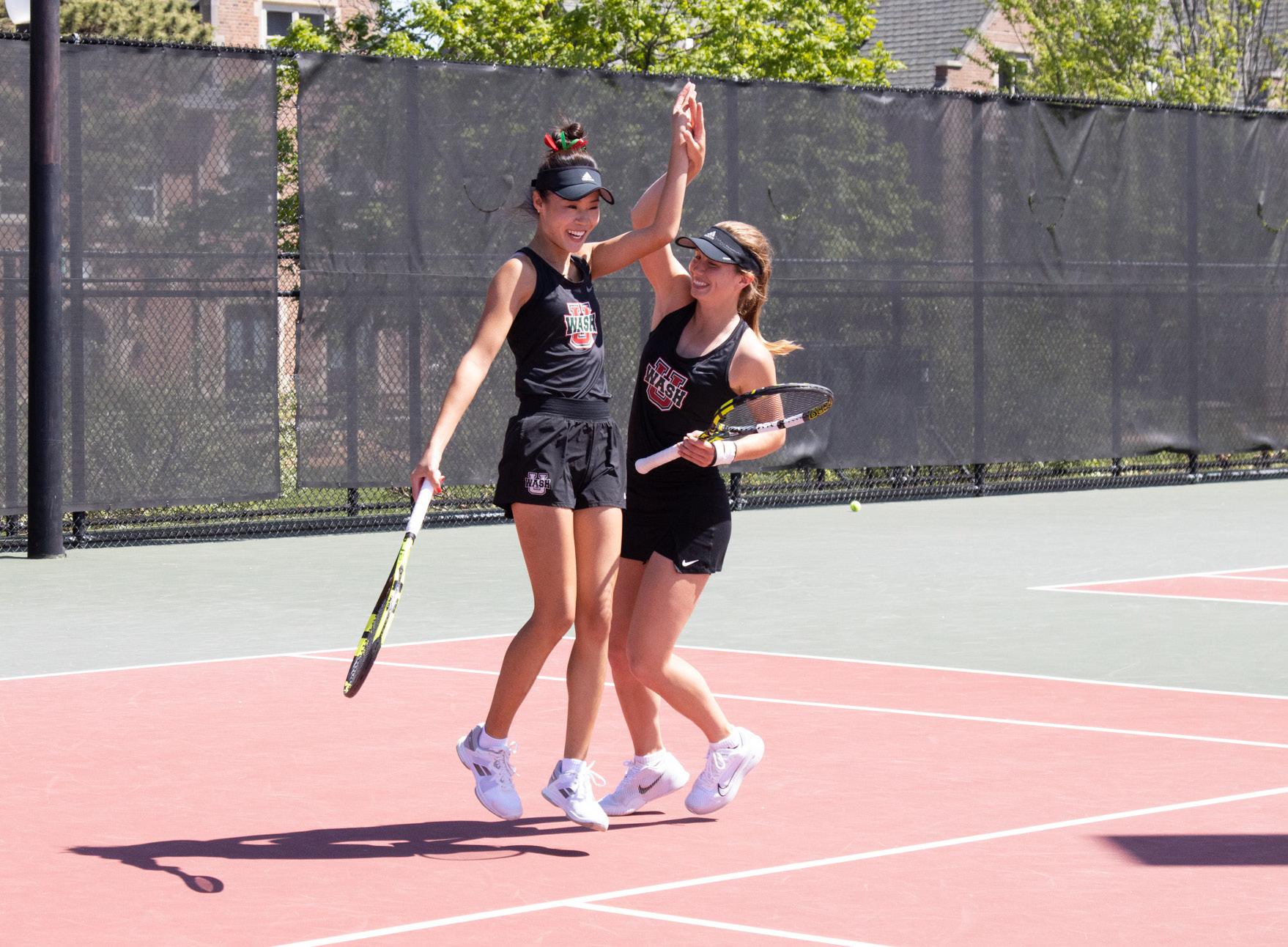
BRI NITSBERG | STUDENT LIFE
Women’s tennis won two out of three doubles matches in the win over Denison.
out firing early on to win two out of three doubles matches. The Bears’ only doubles win came from the hands of the second doubles team, led by Kuo and junior Scott Yamamoto, who won their match 8-5. The Bears looked to mentally refocus and flip the script of the match during singles. However, only senior Gaurav Singh, competing at fourth singles, was able to win his match, and Denison dominated the remaining five singles matches. Although Denison was able to overpower the Bears, WashU still put up a fight as both Kuo, in the third singles spot, and sophomore Case Fagan, in sixth singles, pushed their matches to
three sets each.
Following the rough loss to Denison, the Bears had to refocus to play powerhouse UChicago the next day. Kuo was once again confident in the team’s mentality. “I do not think it was a hard turnaround. Obviously, losing to Denison is pretty rough, but we had the right mindset going into playing Chicago, as we were hungry and ready to go.”
Although the Bears came ready to play, Chicago jumped out to an early 3-0 lead in the match after winning all three of the doubles matches dominantly. The Bears showed some life in their singles matches,
as senior Jared Phillips won his first singles match 6-3, 6-7, and 12-10. Kuo continued the winning ways as he won his number-four singles in straight sets 6-3, 6-1, and graduate student Sergiu Celebidachi won his fifth singles match 6-4, 6-3. But UChicago took control, winning the other three singles matches to win the overall match 6-3.
With this loss, the Bears drop to an overall record of 10-9. The Bears will look to get back to their winning ways on April 22 as they host McKendree University, who is ranked No. 15 in NCAA Division II, in their regular-season finale.
RILEY HERRON | MANAGING SPORTS EDITOR | SPORTS@STUDLIFE.COM 6 STUDENT LIFE THURSDAY, APR 18, 2024
WILL SAN JOSE STAFF WRITER
ARYAN KUMAR STAFF WRITER
Case
the
Athlete of the Week: Maria Brooks’ keys to becoming a pitching ace in her first collegiate softball season
be playing until June 5.
SL: Are you watching any good shows or reading anything interesting right now?
First-year Maria Brooks has played a vital role in the Washington University’s softball team’s hot start to the 2024 season. While Brooks sometimes plays first base, she is primarily a pitcher and leads WashU’s team and the entire University Athletic Association (UAA) with a 1.20 Earned Run Average (ERA). On April 13 and 14, in backto-back conference games against No. 6 Case Western Reserve University, Brooks threw two complete games, including her third shutout of the year, to earn a crucial pair of wins and improve her record to 8-1, and was named UAA Softball Pitcher of the Week. In the 58.1 innings she has pitched, Brooks has struck 34 players out and has only allowed 37 hits and 11 runs. Off the field, Brooks studies Business and Computer Science. Student Life sat down with Brooks to discuss her life outside of softball, how Division III softball compares to growing up playing competitively in Florida, and how she stays calm under pressure on the mound. This interview has been edited for length and clarity.
SL: What do you do when you’re not playing softball?
MB : When I’m not playing softball or doing homework, I’m probably watching TV or reading a book. If I have extra free time, I’ll watch a movie or work on a random side project like crocheting. I have a Lego set in my room that I’m waiting to complete when school is over and I’m stranded on campus with nothing to do. Our last official games are on May 9, but if we make it to the postseason, we could
MB : I’m in my rereading/rewatching era, so I’m rereading “Twilight” and just finished watching “Ozarks,” which was really good. I’m rewatching “Hunter x Hunter” right now. I’m going on a little nostalgic run watching all my old favorite shows and reading all my old favorite books.
SL: Can you tell us about your history with softball? How did you get into it, and what made you decide to play in college?
MB : I’ve played sports my entire life; my parents always put me in sports when I was little. Softball ended up being my favorite because it was the one I had the least complaints about when I was younger. I was good at tee-ball when I was five and have probably been playing actual softball since I was eight. I played competitive travel ball since sixth grade, so playing in college just seemed like the obvious next step. When I was younger, I wanted to play in a big SEC [Southeastern Conference] school and play on TV, but WashU’s old head softball coach, Coach V [Michelle Venturella], saw me play in Colorado and reached out to my coach. I had no idea what WashU was, but my pitching coach is from St. Louis so she knew all about WashU and convinced me to give WashU a better look. Then I ended up loving the coaching staff and team, and here I am!
SL: Are there any athletes who serve as your role model?
MB : Monica Abbott’s one of the best softball pitchers, so of course she’s the poster child for success in softball. But I also really like Rachel Garcia, who played for UCLA
and pitched and hit when UCLA won the College World Series. I like the fact that she pitches and hits because, since I was young, coaches have told me that I’m a pitcher only and nothing else. I like that Garcia proves it’s possible to be really good at both.
SL: Has there been a big transition to being a DIII athlete at WashU?
MB : Yes and no at the same time. I’ve always been a student-athlete, just now it’s a lot more serious. But even in high school, I took a lot of APs and then drove an hour and a half to travel ball practice three times a week or had practice for my high school’s softball team every day, so it’s a similar routine. At WashU, there’s a little more freedom, but at the same time, classes are more demanding. I feel like the most important thing is to make the most out of any free time I have, which is not something I did much in the past.
SL: I know traveling for softball is not new to you, but outside of academics, has there been anything that surprised or challenged you?
MB : We recently traveled to New York to play New York University, and the one thing that kind of sucks about travel trips is that we have to leave on Thursdays, so I have to make sure to get ahead on work the week leading up to the trip. The nice thing is that we have so much downtime in the hotel, and when you’re in a hotel or airport and not really allowed to do anything because you’re there on a “business trip,” as our coaches call it, seeing the rest of the team doing their homework helps keep me from falling behind. So, I guess it’s just like getting in the mindset that you need to do damage control beforehand and taking advantage of the downtime

between games.
SL: What has enabled you to play such a key role in your first college season?
MB : Florida has better high school softball than most states, so I’ve had experience playing against good players my entire life. This has set me up well for college because I’m not caught off by anything, especially since I used to play against DI athletes. If anything, knowing that there’s not much of a difference between college and travel ball set me up well and didn’t make me feel unprepared.
SL: What do you think your role on the WashU team is?
MB : My role right now is definitely to prioritize pitching. We have six pitchers on the team, so my role is to have my moment and be the best I can be, both individually and on the pitching staff. If I’m starting a game, it’s to know it’s my time and prevent runs from scoring. But if I’m relief, it’s to make sure I understand what the pitcher in front of me wants from me and be ready when they need me to be. If I’m not in the game, my role is to be a positive light in the
dugout, cheer as loudly as I can, and be as happy for everybody as if I were in the game. Energy goes a very long way, and you can win a game solely based on how much you want to be there. My role is also to support the other girls on the team and staff when needed.
SL: Do you have a specific mindset you try to channel when you’re pitching, and how do you handle the pressure of being a pitcher as everyone’s eyes are on you?
MB : I feel like the biggest thing that helps in general with sports is to believe you are better than your opponent, even if it’s not true. I try to tell myself, “You are a better pitcher than that girl’s a hitter” or “You’re a better hitter than that girl’s a pitcher.” Having the mindset that “I belong here,” “I’m better than you,” “you’re not going to get a hit off me,” etc., instead of “I don’t know if I can do this” helps me. Being confident and being able to brush things off instead of letting myself spiral also helps a lot. It’s important to have strong confidence and not weak confidence that can get destroyed by some girl
getting a hit, throwing a bad pitch, walking somebody, etc.
SL: Was there anything I didn’t ask that you think is worth mentioning?
MB : I think the hardest part about being a studentathlete is feeling alone in it and that no one understands what you’re going through or the stress you’re under. One thing that I really love about the team is that I feel the girls are very much there for me and not fake about it. They genuinely want all of us to reach out to them and succeed. Being a part of a team that has a culture of making me feel supported, heard, and safe is really nice.
SL: This last question is a question that StudLife asks every athlete of the week. Would you rather have fish for hands or adopt a child every time you hear the song “Bohemian Rhapsody”?
MB : I’ll adopt the child every time because I’m not going to hear the song that often and it would suck to have fish for hands. I don’t even like fish either.
2024 AOTW Tracker: Adopt a Child 5, Fish for Hands 2
Baseball goes winless in crucial weekend series against Emory
Entering the weekend of April 12, the Washington University baseball team found themselves in a good position for the season. After winning five of their last six games, their record was a strong 19-9, and with a 3-1 conference record, they sat in second in the competitive University Athletic Association (UAA). Their opponent, division rival Emory University Eagles, lagged behind, and the Bears had an opportunity to pull away. For the Bears, however, the four-game stretch against the Eagles was a weekend to forget. WashU narrowly avoided getting swept with a tie in the third game, but lost all three others, losing by a run-differential of 48-18 across the four-game series. With the losses, the Bears fell to fourth place in the five-team UAA, with their golden opportunity faded away.
“We’re just trying to play baseball, you know,” graduate student Sam Polk said. “Just gotta do whatever it takes to win.”
The first game of the series was a stinker for WashU, as the Bears were mercy-ruled in eight innings in a 21-7 loss. There wasn’t much good to find in this game given the 14-run loss, but graduate student Evan Minarovic was a bright spot. He hit a grand slam while the game was still within reach to cut a five-run
deficit to 5-4 in the third inning. The home run continued a strong first season at WashU for the third baseman, who transferred from Northwestern University this year, as he left the game with a .314 batting average with 10 extra-base hits, including four home runs.
The grand slam was part of two comebacks the Bears would attempt to mount in the first game against Emory, but each time, WashU’s pitching faltered, preventing any
serious rally.
After bringing the score back to 5-4, the Bears fell down by six runs but stormed back to score three on a bases-loaded knock by senior second baseman Clayton Miller, bringing the score to 10-7.
But that was the closest the game would remain, as Emory unleashed an onslaught of 11 runs in two innings, including a seven-run eighth that led to the game being called. WashU had to try to put the game behind them and
look forward.
“You just gotta play one game at a time,” Polk said. “You go at it with a 0-0 mentality and look to win whatever game you’re playing in.”
Read the rest online:
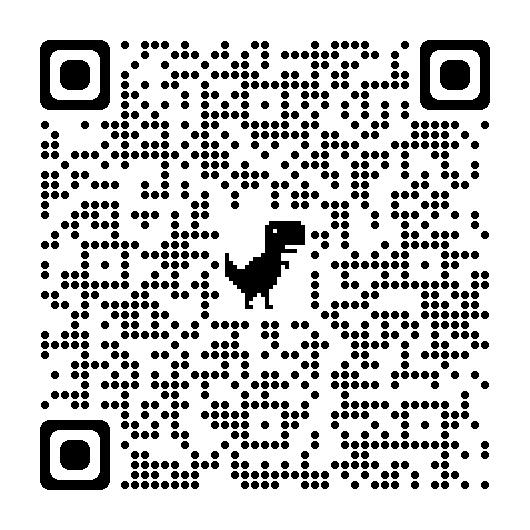








drink. dine play.
BAR RESTAURANT AND Dine-in, carry-out & delivery! VIEW OUR MENUS & ORDER ONLINE Open Daily, from 7a to 2p RILEY HERRON | MANAGING SPORTS EDITOR | SPORTS@STUDLIFE.COM STUDENT LIFE 7 THURSDAY, APR 18, 2024
WEEKLY
LYDIA NICHOLSON | STUDENT LIFE
ELIZA STULMAN CONTRIBUTING WRITER
First-year Maria Brooks, who leads the UAA with a 1.20 ERA, has been a key addition to WashU’s strong pitching rotation.
JACOB RITHOLZ STAFF WRITER
6 months for $0. Streaming, savings, and free delivery. New members only. Terms apply.
8 STUDENT LIFE THURSDAY, APR 18, 2024









































